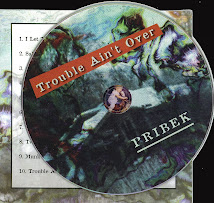Captured by Pat Darnell | May 12, 2013 | Bryan TX "
[Picture LINK]
... One is reminded of the classic American comedy duos like Dean Martin and Jerry Lewis, George Burns and Gracie Allen, or 60s TV acts like Rowan and Martin and the Smothers Brothers. The Chinese art is called xiangsheng (literally, “face and voice”), which is usually translated into English as “crosstalk”, and for most of the twentieth century this performance form was virtually synonymous with humor in China. (Jeremy Goldkorn. November 16, 2004. LINK) ... "
How ‘The Daily Show with Jon Stewart’ Blew Up in China : The New Yorker: "He’s right, but there is something at work that runs even deeper: the popularity of Stewart and “The Daily Show” among the urbane crowd offers a good measure of how China is changing. And it bodes well for the future of satire in China."
So just what does China think of “The Daily Show”? Max Fisher, the Washington Post’s foreign affairs blogger, first noticed that a segment on North Korea, entitled “Nuke Kid on the Block,” had been subtitled in Chinese and racked up two million eight hundred thousand views in China. He wondered if “the voraciousness with which Chinese viewers are watching the segment suggests that their appetite for such coverage, for publicly criticizing an ally that has become something of an embarrassment, far exceeds what they’re getting.”
So we at MooPig Humor Detection Agency delve a bit deeper -- "... Crosstalk used to be phenomenally popular in China. Teahouses and auditoriums were packed each night with enthusiastic audiences, every theatrical troupe had a stable of crosstalk performers, and crosstalk was an essential part of every Chinese New Year variety show...
" ... Similar humor forms remain wildly popular in the States and in other countries. Stand-up humor is easily staged, quickly produced, and has an immediacy and topicality that no other form of humor can have. All people, including Chinese people, crave the cathartic release that laughter provides. If done right, there is no reason to think crosstalk would not enjoy the same popularity as its foreign counterparts. The real cause of crosstalk’s decline is painfully obvious, though no one dares to publicly acknowledge the truth: the Communist Party killed it. (Jeremy Goldkorn. November 16, 2004. LINK) ... "'via Blog this'
In 1949 came the Chinese Communist Government. It imposed its dullness on Chinese CrossTalk because CrossTalk lampooned everything from poor people to efficacious, though impotent, elite. It satirized "pompous social elites, corrupt officials, country bumpkins, the handicapped, prostitutes, the effete intelligentsia, and even the KMT leaders in power at the time. It is difficult to convey the culturally-embedded style and content of crosstalk humor in a brief article such as this, but suffice to say, the form was every bit as rich and varied as the traditions of American Vaudeville and stand-up comedy. (David Moser. Posted by Jeremy Goldkorn on Tuesday, November 16, 2004. LINK) ... "
" ... Posted on May 10, 2008 by porfiriyCONCLUSION
So what do you do if you’re interested in ascertaining how a nation’s social imagination classifies and categorizes a particular subset of its citizens?
Ask the Internet, of course!
This time, John Pasden of Sinosplice is our kindly intermediary. A few days ago he posted links to two humorous maps making rounds as jokes among Chinese netizens: China as seen by Beijingers and China as seen by Shanghainese. The concept is really quite simple: take a map of China, divide it into regional categories, then write in what a Beijinger or Shanghainese generally thinks of that area – so a Beijinger calls Beijing “Grandpa’s Home,” simple enough, but then we find out that Beijingers think prostitutes come from Manchuria, that Yunnan is a place of drug peddlers, and that the south coast is all about making money – oh, and hilariously, Taiwan – “Bitch at grandpa from not going here back then.” Obviously, it’s meant to be that type of rowdy, in-your-face, non-PC type of humor. Which is exactly why its such a good place to mine for info about mutual perceptions among peoples of China. Xinjiang in the eyes of Beijingers? (porifiy. May 10, 2008. LINK) ... "
Our humor detection agents found that 'China is too big to not be funny.'
[Picture LINK]
___________________Reference
http://www.newyorker.com/online/blogs/evanosnos/2013/04/jon-stewart-daily-show-china-north-korea.html?intcid=obnetwork
http://www.danwei.org/tv/stifled_laughter_how_the_commu.php
http://www.thenewdominion.net/2008/05/10/online-humor-affirms-xinjiang-stereotypes/
http://commons.wikimedia.org/wiki/File:ROC_PRC_comparison_eng.jpg
http://www.littleredbook.cn/2009/08/17/tiantian-fart-jokes-air-freshner-classic-chinese-humor/








No comments:
Post a Comment